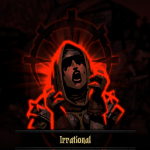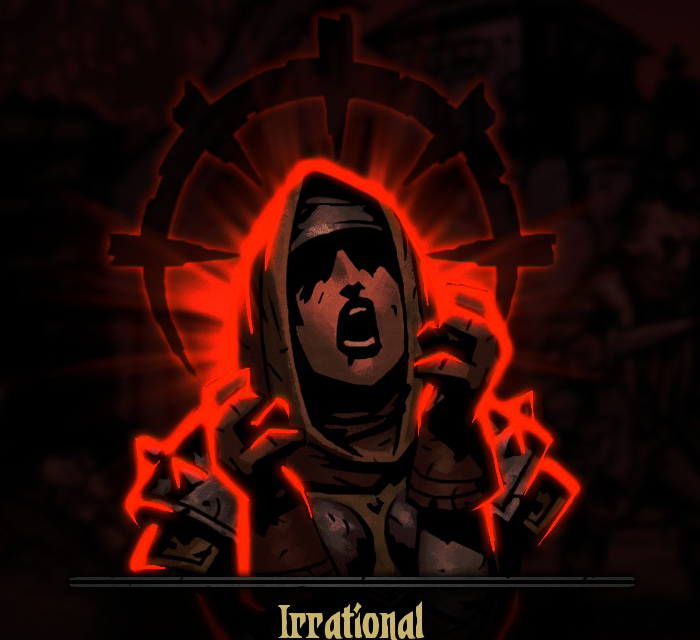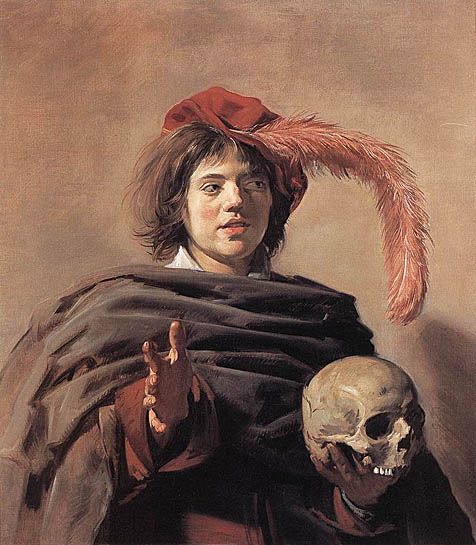Please note that this post will contain some large spoilers for Darkest Dungeon.
The life of an adventurer must be tough.
So many pieces of media ignore the brutality of such a life, instead emphasizing the heroism or glory that it entails. They neglect the struggle with near constant mortality, the intense stress of struggling against a foe, the isolation from living a life inconceivable to the common man. Darkest Dungeon accepts those realities with a cold, almost sarcastic air. Half Lovecraftian horror, half cruel Dungeons and Dragons, Darkest Dungeon is a strategic RPG that emphasizes the traumas of being a hero.
In the game, you play as a faceless inheritor of a grand estate long scarred by greed and cruelty, upon which an excavation has uncovered terrible forces that threaten humanity as a whole. Serving as the commander of adventurers who seek glory or redemption, you guide them into the corrupted lands to strengthen them from the cruel battles inside the titular locale.
In Darkest Dungeon, survival of the fittest is in full play. Only the strongest endure the battles levied against them; and even then, sometimes even the fittest are damned to failure. It is a game as much about luck as it is strategy; a perfect run can be sent into chaos with a single bad bout of luck, that creates a domino effect for the rest of the party. However, death is not the worst option for characters. Darkest Dungeon intermingles a health system with a sanity system that emphasizes the fickle nature of the human psyche. Heroes are often intensely psychologically tested by the horrors of their battles.

Sometimes, they overcome these limitations, resurging in confidence or willpower and reinvigorating their teammates with their endurance. Other times, and far more commonly, they crumble under the stress, reverting to infantile insults, cowardice, or intense narcissism. These qualities impact both their fighting ability and the rest of the party; after all, who wants to deal with a doomsayer in a matter of life and death? Or an adventurer willing to take another life to save their own?
These trials are only the beginning of the deep systems that separate Darkest Dungeon from the crowd. A hero’s experiences lead them to develop habits and traits. For example, a hero may cope with the intense trauma by developing a phobia of a creature that then limits their ability to fight it. They may develop kleptomania, stealing treasure that you need to fund expeditions as well as care for the other heroes. They may simply develop a fear of an area that will make them refuse to enter. Any hero who completes a mission in the Darkest Dungeon will refuse to ever enter it again due to the unspeakable horrors it contains within.
In a now unavailable review for the game, critic Jim Stephanie Sterling connects the defensive playstyle to capitalist behavior. They argue that the player is made a ruthless sort of robber baron, utilizing heroes until they become ill enough that they are no longer valuable. When aiding them and providing treatment for their issues, both physical and psychological, ceases to be cost-effective, they are to be dismissed and replaced with able-bodied and stable adventurers, after which the cycle may easily be repeated. In fact, a viable strategy involves hiring volunteers who submit themselves to the efforts to cleanse the area, sending them in to collect as much treasure as they can carry, only to have them flee rather than fight. Even if some may die, only one needs to be alive to haul the gains back. After which, the player may dismiss the survivors, leaving them with only the traumas of their brief encounters as compensation for their effort.
The game does not reward empathy; it is very blatant that characters can and will die no matter their skill level. The player must become thick-skinned in sentencing their favorite characters to their doom. The cost of retreat may outweigh the loss of one hero; in a world as dark as this one, caution is but a delusion. In the case of the titular Darkest Dungeon, leaving requires one of the heroes to give their life holding back the horde of eldritch horrors that lay within; there is not a choice or a gamble to evade the necessity. To make matters worse, the player must choose which of the survivors of the mission is to nonetheless be sentenced to a horrid death. The game does not only make the player endure such losses. It makes them complicit in sentencing their subjects to death.
In the final battle, this is taken to its logical conclusion. The final enemy of the game has an attack called “Come Unto Your Maker.” When used, the fight pauses, and the player must choose a hero to be sentenced to death. There is no way to dodge the attack, or pick an alternative option; in order to continue the fight, the player must make sacrifices. The attack is used twice, ensuring that half of the party will not survive the fight. Given that the Darkest Dungeon requires one person to hold the beasts back, only one hero in the world-saving party will live to see the fruits of their efforts, though they too will be driven to madness by the things they have seen. Some heroes beg the player to spare them, while some will accept their fate with grace. Their opinion doesn’t matter, regardless. The player dictates what fate befalls a character, and thus accepts some of the blame for their loss.
Darkest Dungeon also sets up an interesting reality for the adventurers who put themselves in the player’s employ. Coming from a number of distinct backgrounds, none are truly heroes. All of them are sinners in their own ways, criminals, murderers, lepers. The Darkest Dungeon is not a quest of glory. At best, it is a quest for redemption. This fact contributes to the general grimdark atmosphere of the game, but it also alludes to the fact that those seeking the lifestyle of fantasy heroes are not well. They are either deluded, or actively suicidal.
Darkest Dungeon is a game that requires plenty of strategic knowledge, but it also requires skillful improvisation. Any plan can and likely will fall apart when stress is applied to it, and the costs are dire enough to cause failure. Missions in this game can and will go wrong, and entire parties will pay the price with their lives. One failed roll can completely dismantle a successful mission, and a party can be unraveled by a domino effect of loss. If the player is not capable of rolling with the punches and making the best of a bad situation, loss is inevitable. Sometimes even that isn’t even enough. The consequences of bad luck can be truly terminal.
There are no resurrections to be had. Losses are final and must be worked around rather than averted.
Within strategy games especially, an issue arises with a strategy known as “save scumming.” Those who apply the tactic use the following outline: before every action, make a save. If the random number generated is not to one’s satisfaction, reload the save and repeat until every occurrence is to the player’s advantage. I must admit with some shame that I too indulge this habit. Save Scumming completely dismantles the tension of any game where death is more than a simple deterrent. Thankfully, Darkest Dungeon removes the possibility for a player to avoid the tension and loss that plagues it; the game saves over itself after every action, ensuring that there is no going back to fix mistakes that are made. In turn, the player is incentivized to remember and learn from their errors in order to avoid repetition. Sometimes, even this isn’t enough. Random chance always carries the potential to damn a character.
Darkest Dungeon is a game that can cease to be fun; one must learn to deny their sense of empathy in favor of corporate ruthlessness, and learn to cope with losses with something akin to apathy. There is no perfect run of the game. Instead, there are only suitable playthroughs that manage to claw victory from the ashes of defeat. The player must learn to forgive themselves for failure while becoming numb to it. In forcing this unique interaction between player and game, Darkest Dungeon achieves an incredible narrative harmony that reflects its underlying horrors.




